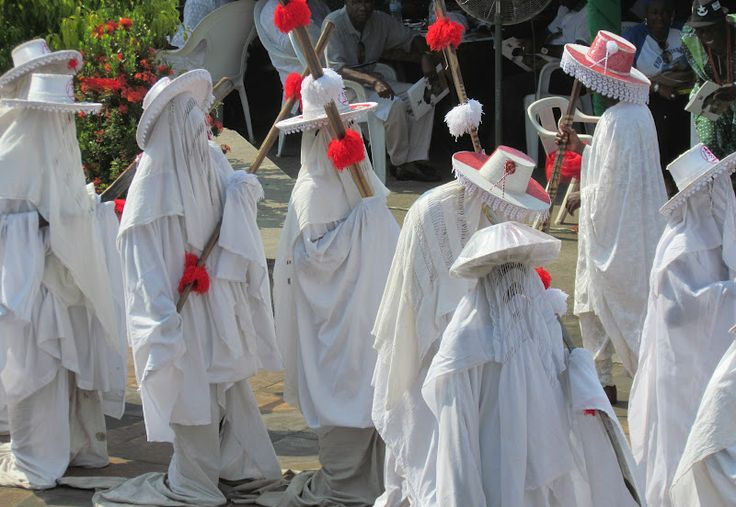Cultural Festivals That Showcase Lagos’ Rich Heritage
- Nov 19, 2025
- 3 min read

Lagos is a city of vibrant cultures, deep-rooted traditions, and historical richness. As a melting pot of ethnic identities Yoruba, Igbo, Hausa, Egun, Brazilian, Sierra Leonean, and many others Lagos hosts some of Nigeria’s most colourful and cherished festivals. Every year, cultural celebrations highlight the city’s artistic expression, spirituality, communal bonding, and heritage preservation. In 2025, cultural festivals will continue to be major attractions for tourists, creatives, and residents who want to connect with Lagos’ identity. Here are the most iconic festivals that tell the story of Lagos.

The Eyo Festival stands as the most globally recognized cultural festival in Lagos. Originating from the ancient traditions of Isale Eko, the festival features Eyo masquerades dressed in flowing white robes and hats, parading majestically through Lagos Island. The festival is held to honor chiefs, kings, or important figures, and to cleanse the land spiritually. During the festival, the entire Lagos Island transforms into a cultural carnival, attracting visitors from across Nigeria and the diaspora. The singing, drumming, chants, and masquerade performances reflect the heart of Lagos’ cultural identity.
Another important festival is the Lagos Carnival, historically known as the Fanti Carnival. This celebration showcases the Afro-Brazilian heritage of Lagos, especially around the Campos and Popo Aguda communities. The carnival features elaborate costumes, choreographed dances, and colorful floats inspired by Brazilian culture. It highlights the historical connection between Lagos and returnee slaves from Brazil in the 19th century. The Lagos Carnival has evolved into a major cultural tourism event, drawing spectators eager to witness a blend of African rhythm and samba-inspired pageantry.
The Badagry Heritage Festival is another cornerstone of Lagos culture. Badagry, one of the oldest towns in Lagos State, holds deep historical significance as one of the major slave trade routes during the 18th century. The festival honors the town’s complex past through reenactments, boat regattas, cultural dances, storytelling, and historical exhibitions. Tourists visit heritage sites such as the Mobee Slave Relics Museum, the First Storey Building, and the Point of No Return. The festival promotes education, remembrance, healing, and cultural pride.
The Ojude Oba Festival, although traditionally associated with Ijebu land in Ogun State, has strong Lagos participation due to the large Ijebu community living in the city. Every year, Lagos residents, especially those with Ijebu heritage, travel for this celebration featuring horse riding, fashion displays, age-grade parades, and cultural performances. Many Lagos-based families and organizations sponsor groups that participate in the festival, reinforcing the cultural exchange between Lagos and its neighboring regions.
The Agidigbo Cultural Festival, celebrated primarily in Lagos Mainland communities, showcases Yoruba traditional music, especially the agidigbo instrument a large wooden thumb piano that produces deep rhythmic sounds. The festival highlights Lagos’ musical roots through live performances, folklore, drumming, street dances, and communal feasts. It is popular among local musicians and young creatives exploring traditional sound fusion.

The Muson Festival, hosted by the Musical Society of Nigeria, is another cultural highlight in Lagos. Though not traditional, it showcases the artistic sophistication of Lagos through classical music, theatre, jazz, choral performances, and exhibitions. Held annually at the MUSON Centre in Onikan, the festival attracts elite audiences, international performers, and Lagos’ creative community.
The Lagos Book and Art Festival (LABAF) represents Lagos’ intellectual and literary depth. Organized annually, LABAF celebrates literature, spoken word, visual arts, and cultural dialogue. Writers, journalists, students, and creatives gather for panel discussions, readings, workshops, art displays, and film screenings. The festival fosters intellectual development and highlights Lagos as Nigeria’s cultural capital.
Other festivals include the Island to Mainland Food Festival, celebrating Lagos’ culinary diversity; the One Lagos Fiesta, a city-wide end-of-year celebration with concerts across five divisions; and the Fishermen Festival in Epe showcasing maritime heritage.
These festivals not only preserve tradition but also drive tourism, promote unity, and enrich Lagos’ identity. By experiencing them, residents and visitors alike gain deeper appreciation for the vibrant culture that makes Lagos truly unique.






Comments